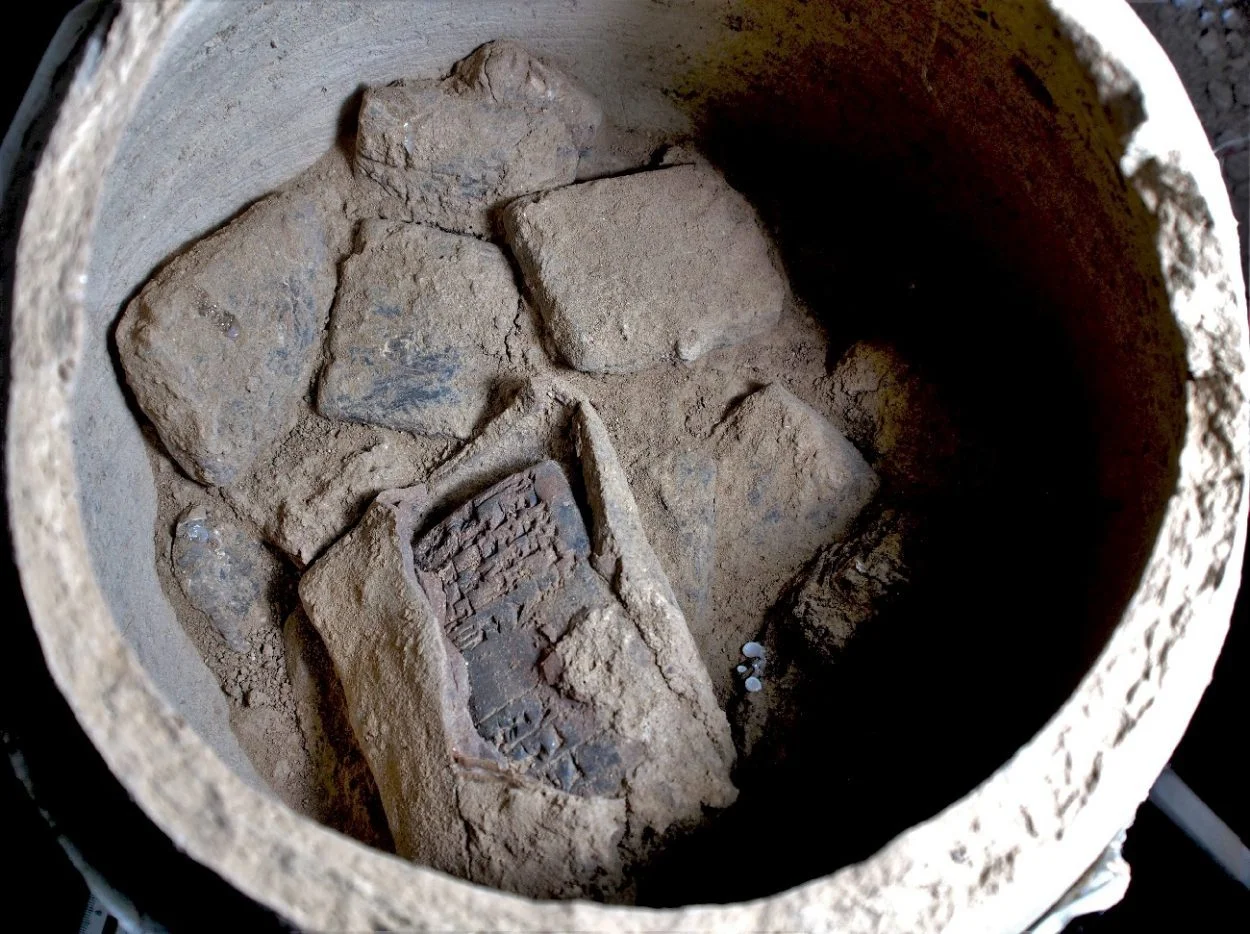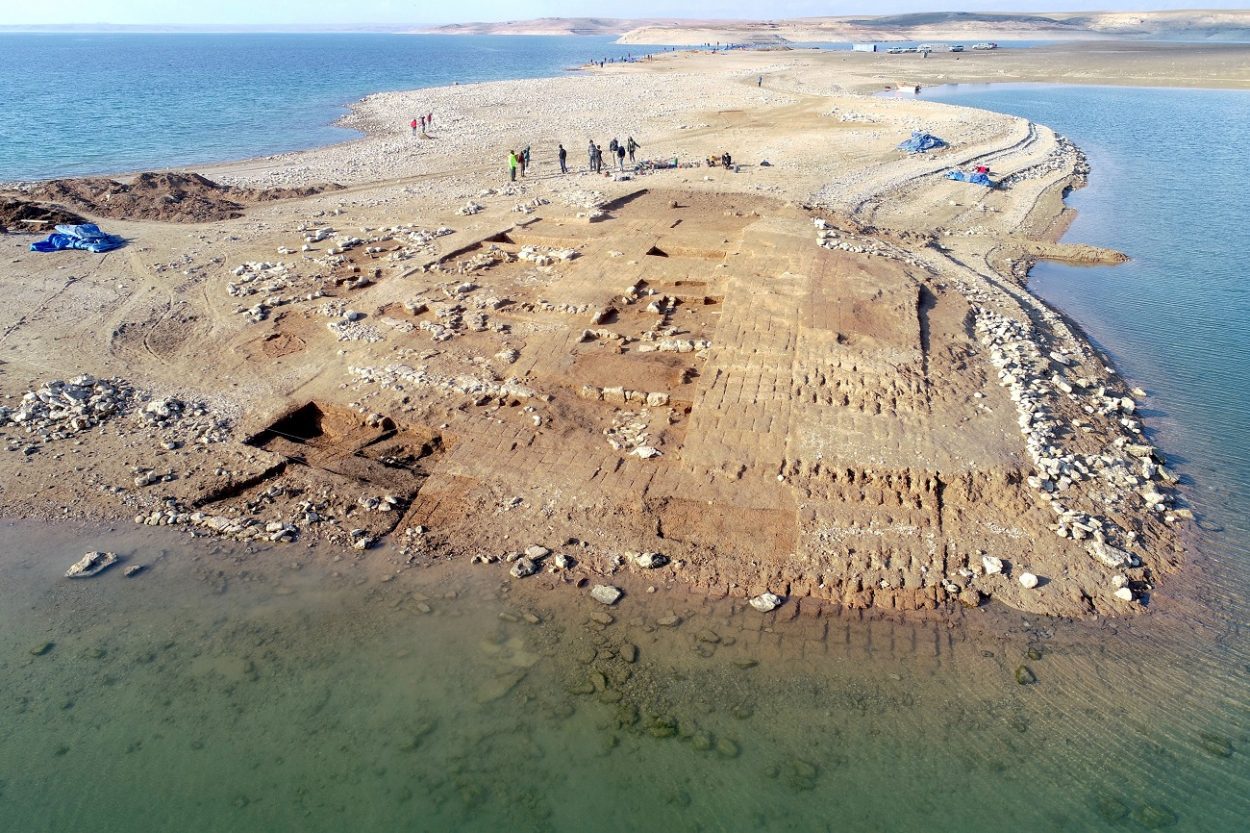A team of German and Kurdish archaeologists have excavated a 3400-year-old Mittani Empire-era city that has emerged in the Tigris River.
The settlement was previously submerged with the construction of the Mosul reservoir, but has since re-emerged due to lower water levels caused by extreme drought.
The city, located in present-day Kemune in the Kurdistan Region of Iraq has a palace and several large buildings that could be the ancient city of Zakhiku – an important centre in the Mittani Empire (1550-1350 BC).
Bronze Age city resurfaced due to drought
Iraq can be affected by climate change, often resulting in extreme drought for months. This has caused major difficulties for the agricultural sector and the draining of large amounts of water drawn from the Mosul reservoir to support farmers crops. The lower water levels has allowed the reappearance of the Bronze Age city, which up until now has never been investigated by archaeologists.
Within a short time, archaeologists have mapped large areas of the city and documented the palace, several large buildings, a fortified wall, towers, multi-storey storage buildings and an industrial complex.

Of particular interest is the discovery of five ceramic vessels that contained an archive of over 100 cuneiform tablets that date to the Middle Assyrian period.
Some clay tablets (which may be letters) are still in their original clay envelopes. The researchers hope this discovery will provide important information about the end of the Mittani-period city and the beginning of Assyrian rule in the region.
Dr. Peter Pfälzner from the University of Tübingen said: “It is close to a miracle that cuneiform tablets made of unfired clay survived so many decades under water.”
To prevent damage to the important site by the rising waters of the reservoir, the excavated buildings were completely covered with tight-fitting plastic sheeting and buried beneath gravel fill as part of an extensive conservation project funded by the Gerda Henkel Foundation.
The site is now once more completely submerged.





